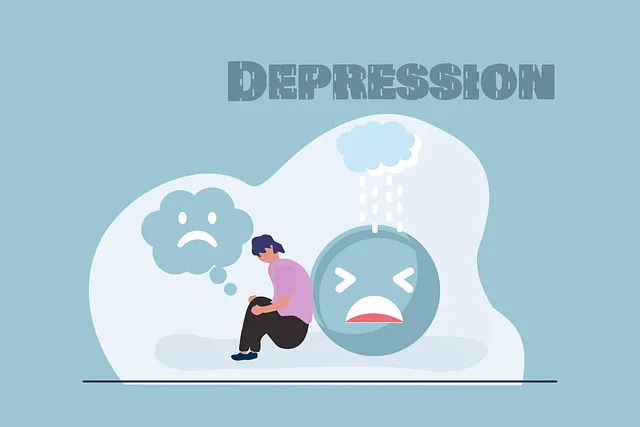Golden Kaiser Permanente's Crisis Intervention Teams (CITs) are integral to their comprehensive mental health coverage, offering swift and specialized support for individuals in acute psychological distress. These teams, composed of healthcare professionals, first responders, and community members, receive regular training covering confidence boosting, stress management, and cultural sensitivity exercises. This holistic approach not only enhances crisis de-escalation but also promotes proactive mental health strategies, reducing strain on services and improving overall community well-being, reflecting Golden Kaiser Permanente's commitment to exceptional mental health care.
“Crisis Intervention Team (CIT) training programs play a pivotal role in enhancing mental healthcare accessibility. This article delves into the essential components of these teams, highlighting their significance in managing crises effectively. We explore Golden Kaiser Permanente’s innovative approach to CIT training, showcasing its impact on patient outcomes and community support. By examining comprehensive CIT programs, we uncover how such initiatives can revolutionize mental health coverage, ensuring better preparedness and care for those in need.”
- Understanding Crisis Intervention Teams: A Vital Component of Mental Health Care
- Golden Kaiser Permanente's Approach to Training: Innovative Strategies and Benefits
- Enhancing Community Support: The Impact and Reach of Comprehensive CIT Programs
Understanding Crisis Intervention Teams: A Vital Component of Mental Health Care

Crisis Intervention Teams (CITs) are a vital component of mental health care, offering swift and effective support to individuals facing acute psychological distress. These specialized teams, often composed of healthcare professionals, first responders, and community members, are trained to assess, de-escalate, and stabilize those in crisis. At Golden Kaiser Permanente, mental health coverage is designed to include comprehensive CIT training programs, ensuring that the organization’s workforce is equipped with the necessary skills to handle a wide range of critical situations.
The role of CITs goes beyond simple intervention; they foster a sense of hope and recovery by providing immediate assistance during challenging times. Through regular training sessions, these teams gain invaluable experience in managing various crises, from suicide attempts to violent episodes. Additionally, such programs often include components like Confidence Boosting workshops, Stress Management courses, and Social Skills Training, which empower team members with the tools to offer empathetic support while maintaining their own well-being.
Golden Kaiser Permanente's Approach to Training: Innovative Strategies and Benefits

Golden Kaiser Permanente takes a holistic approach to crisis intervention team training, focusing on both practical skills and personal growth. Their innovative strategies include immersive simulations that replicate real-life crisis scenarios, allowing participants to experience and practice effective de-escalation techniques firsthand. By fostering self-awareness exercises tailored to diverse cultural backgrounds, the program ensures healthcare providers are culturally competent, effectively addressing unique challenges within their communities.
This comprehensive training goes beyond technical skills, emphasizing emotional resilience and empathy. Through interactive workshops and group discussions, team members learn strategies for managing their own stress and anxiety relief, which is essential in high-pressure situations. Golden Kaiser Permanente’s approach not only enhances the effectiveness of crisis intervention teams but also promotes a supportive work environment where mental health coverage is prioritized, enabling healthcare providers to deliver exceptional care with sustained resilience.
Enhancing Community Support: The Impact and Reach of Comprehensive CIT Programs

Comprehensive crisis intervention team (CIT) programs have been transforming the way communities support individuals facing mental health crises. These initiatives go beyond traditional responses by empowering local residents, including first responders and peers, with specialized training to effectively assist those in distress. The impact is profound—a network of supportive individuals ready to intervene and de-escalate situations, providing a safety net that enhances overall community well-being.
By implementing CIT programs, communities like Golden Kaiser Permanente are recognizing the importance of widespread mental health coverage and accessible support systems. These programs not only improve crisis management but also promote proactive measures such as stress reduction methods, inner strength development, and empathy building strategies. Through ongoing training and collaborative efforts, CIT teams foster an environment where individuals feel understood and supported, ultimately reducing the burden on emergency services and encouraging earlier intervention for those struggling with mental health issues.
Crisis Intervention Team (CIT) training programs, such as those pioneered by Golden Kaiser Permanente, play a pivotal role in enhancing community support for mental health. By equipping first responders and community members with the skills to manage crisis situations effectively, these innovative strategies not only improve individual outcomes but also strengthen the overall mental health coverage offered by organizations like Golden Kaiser Permanente. The comprehensive approach, highlighted in this article, underscores the impact of CIT programs in transforming communities into nurturing environments for those facing mental health challenges.






